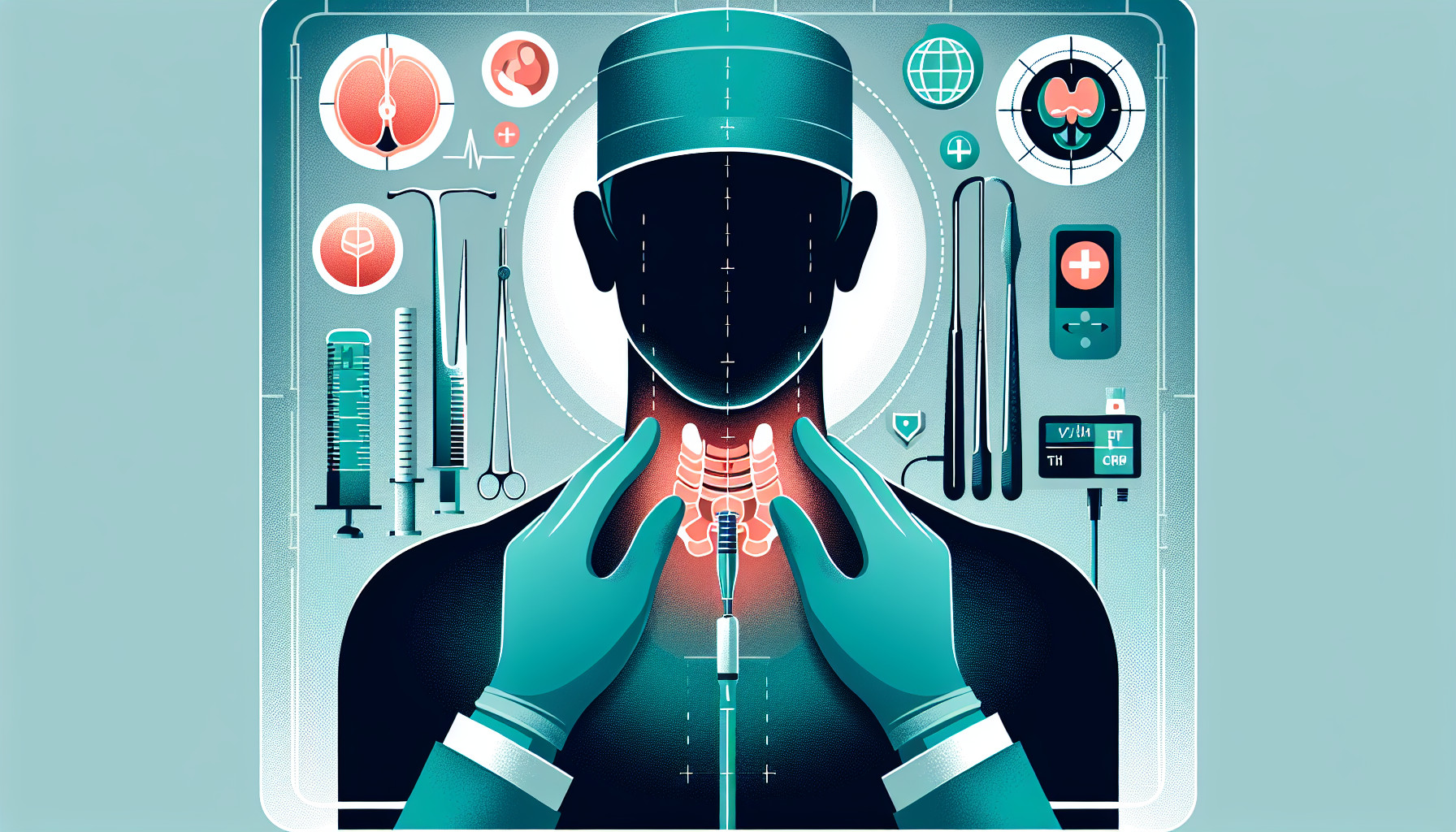Our Summary
This research study focused on understanding how a medical condition called primary hyperparathyroidism (pHPT) affects patients’ quality of life and brain function, and how surgery can help.
pHPT is a disease where the parathyroid glands in the neck produce too much hormone, causing problems in the body. People with this disease often have symptoms like feeling tired or weak, but it can also affect their mood and thinking abilities.
The researchers looked at 101 patients (mostly women, average age around 61) who were about to have surgery to remove their parathyroid glands. They asked these patients questions about their mood and brain function before the surgery, then again one month and six months after the surgery.
The results were quite promising. Six months after the surgery, the patients’ overall quality of life had improved by about 50%. They also reported improvements in their physical health and ability to function in their daily lives. The patients’ mood improved as well: their symptoms of depression decreased by about 60%, their anxiety levels fell by over 60%, and their stress levels were almost cut in half. The patients also did better on tests of brain function after the surgery.
The researchers concluded that people with pHPT, even if they don’t have obvious symptoms, often have a lower quality of life and problems with mood and thinking. But surgery can make a big difference, improving their quality of life, reducing feelings of depression, anxiety, and stress, and improving their brain function. The people who had the most severe symptoms before surgery saw the biggest improvements afterwards.
FAQs
- What is primary hyperparathyroidism (pHPT) and how does it affect patients’ quality of life and brain function?
- What improvements were observed in patients’ overall quality of life, mood, and brain function after undergoing parathyroidectomy?
- Who were the patients that saw the most significant improvements after the surgery?
Doctor’s Tip
One helpful tip a doctor might give a patient about parathyroidectomy is to discuss any concerns or questions they have with their healthcare team before the surgery. It’s important for patients to have a clear understanding of what to expect during and after the procedure, as well as any potential risks or complications. Being informed and prepared can help patients feel more confident and comfortable going into the surgery, and can also help them have a smoother recovery process.
Suitable For
Patients who are typically recommended for parathyroidectomy are those with primary hyperparathyroidism (pHPT) who are experiencing symptoms such as fatigue, weakness, mood disturbances, and cognitive impairments. These patients may also have elevated levels of calcium in their blood and urine. Additionally, patients who are not responding well to medical management or have complications related to pHPT may also be recommended for surgery. It is important for patients to discuss their symptoms and treatment options with their healthcare provider to determine if parathyroidectomy is the right course of action for them.
Timeline
Overall timeline:
- Before parathyroidectomy: Patients with primary hyperparathyroidism experience symptoms such as fatigue, weakness, mood disturbances, and cognitive difficulties. They may undergo diagnostic tests to confirm the diagnosis and determine the need for surgery.
- Day of parathyroidectomy: Patients undergo surgery to remove the overactive parathyroid gland(s).
- 1 month post-surgery: Patients are assessed for improvements in symptoms, mood, and cognitive function.
- 6 months post-surgery: Patients undergo follow-up assessments to evaluate the long-term effects of surgery on quality of life, mood, and cognitive function.
In summary, patients with primary hyperparathyroidism may experience significant improvements in their overall quality of life, mood, and cognitive function following parathyroidectomy.
What to Ask Your Doctor
Some questions a patient should ask their doctor about parathyroidectomy include:
- What are the potential risks and complications associated with parathyroidectomy surgery?
- How will my quality of life be affected by having this surgery?
- What improvements can I expect in my mood and cognitive function after the surgery?
- How long is the recovery process after a parathyroidectomy?
- Will I need to take any medications or make lifestyle changes after the surgery?
- How often will I need follow-up appointments after the surgery?
- Are there any long-term effects of having a parathyroidectomy?
- What are the success rates of this surgery for patients with primary hyperparathyroidism?
- How experienced are you in performing parathyroidectomy surgeries?
- Are there any alternative treatments or therapies I should consider before opting for surgery?
Reference
Authors: Jovanovic M, Zivaljevic V, Sipetic Grujicic S, Tausanovic K, Slijepcevic N, Rovcanin B, Jovanovic K, Odalovic B, Buzejic M, Bukumiric Z, Paunovic I. Journal: Endocrine. 2023 Sep;81(3):592-601. doi: 10.1007/s12020-023-03426-3. Epub 2023 Jun 21. PMID: 37340287
